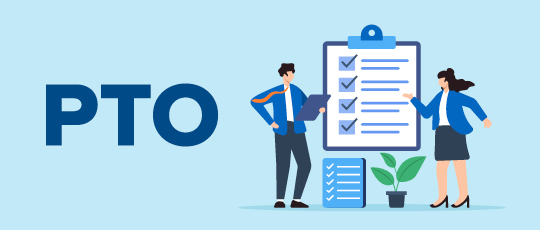Rachel Weaven’s burnout crept up on her slowly. As part of the human resource department at a company with about 600 employees, she found herself gradually working longer and longer hours during the height of the COVID-19 pandemic. On top of that, the goals being set by her supervisors were constantly changing, making it hard for her to understand what was expected of her.
Thinking back, Weaven said what tipped her over the edge was something silly, but still serious enough to cause her to take action. While working from home, she posted something on Facebook, which a co-worker saw. Soon after, Weaven received a phone call from a manager about being on Facebook when it wasn’t her designated break time.
“I remember sitting there going, ‘Are you freaking kidding me?’” Weaven said, adding that she felt she could no longer work productively under such scrutiny.
At the urging of her husband, she spoke with a doctor who confirmed she had reached burnout levels. Weaven thought the feelings would pass and said as much, but the doctor persisted in telling her she needed time away from her job, comparing it to the need to rest a broken arm.
In the end, Weaven left the company after deciding its values didn’t align with hers. She now works for herself as an HR consultant in England, where she resides.
Weaven believes that the inherent challenges of working in HR can take a toll on practitioners — and that this reality isn’t always recognized.
“I just think there needs to be a bit more awareness for HR people that actually, it can be quite a hard industry from a personal perspective,” she said.
That message would likely resonate with a lot of HR professionals these days.
According to a recent survey from Workvivo, 98% of HR professionals said they had felt burned out in the previous six months. Furthermore, 78% were open to leaving their jobs and 71% didn’t feel valued by their organizations.
“You feel you’re stuck in the middle sometimes between the employees and the company,” Weaven said, and looking back, she feels there were early signs of burnout. At the time, however, she felt it was all a part of working in HR.
What Is Burnout?
The World Health Organization defines burnout as “a syndrome conceptualized as resulting from chronic workplace stress that has not been successfully managed.” It says burnout is characterized by three dimensions:
- Feelings of energy depletion or exhaustion
- Increased mental distance from one’s job, or feelings of negativism or cynicism related to one’s job
- Reduced professional efficacy.
What Has Led to So Much Burnout?
According to Workvivo, the pandemic and the Great Resignation have affected HR professionals in significant ways. These events led to more work, an increase in stress, a jump in employee departures and greater difficulty recruiting new workers.
The Workvivo survey also revealed that 1 out of 2 HR professionals feel like their organizations do not support HR.
Burnout among HR professionals can be similar to burnout among other industries, such as healthcare because both jobs consist of taking care of people, but the emotional toll can be heavy on those employees. HR professionals, meanwhile, have seen “a double layer” of contributing factors, according to Melissa Swift, U.S. transformation leader at Mercer. The first layer was the pandemic, during which employees became increasingly vocal about their needs, she explained, and the second layer is dealing with the burnout that everyone from company leaders to rank-and-file employees are experiencing.
“From what I’ve observed, HR is often caught in the web of just a lot of priorities, so they have very, very intensified work,” Swift said.
She noted that burnout can be difficult to identify because it manifests differently in different people.
“It shows up in ways like people isolating themselves or not behaving in a civil fashion,” Swift said. “That’s why you want to have a bunch of different metrics — ideally, some of them quantitative. You want to have some of those brute-force quantitative measures, just to make sure you don’t miss it.”
Carlene Anteau, senior vice president of marketing at digital mental health provider Learn to Live, agreed that a heavy and mentally demanding workload can make HR professionals especially prone to burnout. (Anteau recently presented at WorldatWork’s Total Rewards ’23 conference about “Evaluating Proven Mental Health Interventions for the Modern Workforce.”)
“(HR leaders) are trying to juggle a lot of tasks and responsibilities,” she said, many of which are emotionally challenging. “They’re dealing with terminations; they’re dealing with disciplinary action like performance improvement plans, which are always tough conversations; and then, any employee conflicts.”
“If the HR leader is burned out, you’re losing part of the immune response.”
The Risks of Burnout
HR leaders who are burned out may experience exhaustion, cynicism, inefficiency, detachment and anxiety, said Anteau. These symptoms can then cascade throughout the company, she explained, and result in lower employee morale, poor talent management, increased conflict, loss of strategic influence and decreased levels of support from managers and partnership potential with HR.
They could also lead to significant financial costs for the company, Anteau said, in the form of turnover costs, productivity losses, legal and compliance fees, absenteeism, and benefits claims related to burnout.
“Think of HR as part of the anti-burnout defenses of the organization,” Mercer’s Swift said. “If the HR leader is burned out, you’re losing part of the immune response — so each person’s burnout then affects the whole organization even more. … There is no such thing as a healthy company culture with a bunch of burned-out folks sprinkled throughout.”
How Companies Can Offer Support
According to Anteau, it’s important to look at a company’s culture to see how it can help HR professionals overcome burnout: Does company leadership encourage people to take breaks? Do those leaders encourage work-life balance? Do they openly communicate? Do they creatively work together to solve problems?
Meanwhile, Swift cautioned companies not to implement solutions that don’t get at the heart of the issue. Introducing a meditation program to deal with burnout, for example, treats the symptoms, not the cause.
“The cause is the work,” she said. “So, make sure HR has a short list of priorities, so things don’t get added back onto their plate.”
It’s also crucial for HR professionals to incorporate rest and recovery into their workdays, Swift said.
She advised against working like crazy, going on a big vacation and then working like crazy again. “We’ve seen that doesn’t really help with burnout because the second you’re back on the ground, everything’s crummy again,” Swift said. Instead, she recommended rewarding yourself for tackling a hard task by going for a walk, which is a lot more powerful in combating burnout.
Companies can also help address burnout through preventive measures and training for their HR leaders. For instance, it’s important for employers to help individuals understand the difference between typical stress and burnout, said Tina Lawler McHugh, senior research associate at the Boston College Center for Work & Family. Lawler McHugh addressed those themes in “Mental Health in the New Workplace,” a Journal of Total Rewards article that she co-authored in 2022.
Employers should also communicate any benefits and resources that are available, such as vacation, paid time off, coaching, flexible work schedules and other tools. An employee assistance program may offer counseling services, for example.
But communication must go both ways, according to Lawler McHugh.
“As they assess imbalances in their workplace experiences, workers should openly and routinely communicate with their supervisors about workload and seek projects that bring them energy,” she told #evolve.
Lawler McHugh added that companies should make it culturally acceptable to rest and enjoy downtime.
“HR professionals may feel like they have to be ‘always on’ given their interface between leaders and the workforce, so things like ‘no-meeting Wednesdays’ and global days or weeks of rest can go a long way toward preventing or reducing burnout,” she said.
In addition, employers can adopt programs like Mental Health First Aid to educate people at all levels of the organization on the importance of tending to their mental health and well-being.
“This helps to build awareness and normalize the conversation around behavioral health, which is critical,” Lawler McHugh said.
Seek Out Support
Even though Weaven, the HR consultant who experienced burnout at her previous job, is now in a much better place mentally, there was a time she considered leaving the profession. After doing some work with a coach, however, she realized she still enjoyed HR. To improve her work-life balance, she practices self-care by journaling, exercising, meditating and walking her dogs. Weaven also has a strong sense of what’s important to her, and that helps her determine who she wants to work with.
“I am clear on what my values are, and that allows me to work with clients who align with that,” she said.
To others in the profession who fear they may be close to reaching burnout levels, Weaven offered this advice: Speak up and ask for help.
Lawler McHugh agreed that having others to turn to can help keep burnout at bay.
“It is critical that workers cultivate social connections both inside and outside the workplace to find meaningful sources of purpose and support,” she said.
Editor’s Note: Additional Content
For more information and resources related to this article see the pages below, which offer quick access to all WorldatWork content on these topics:







